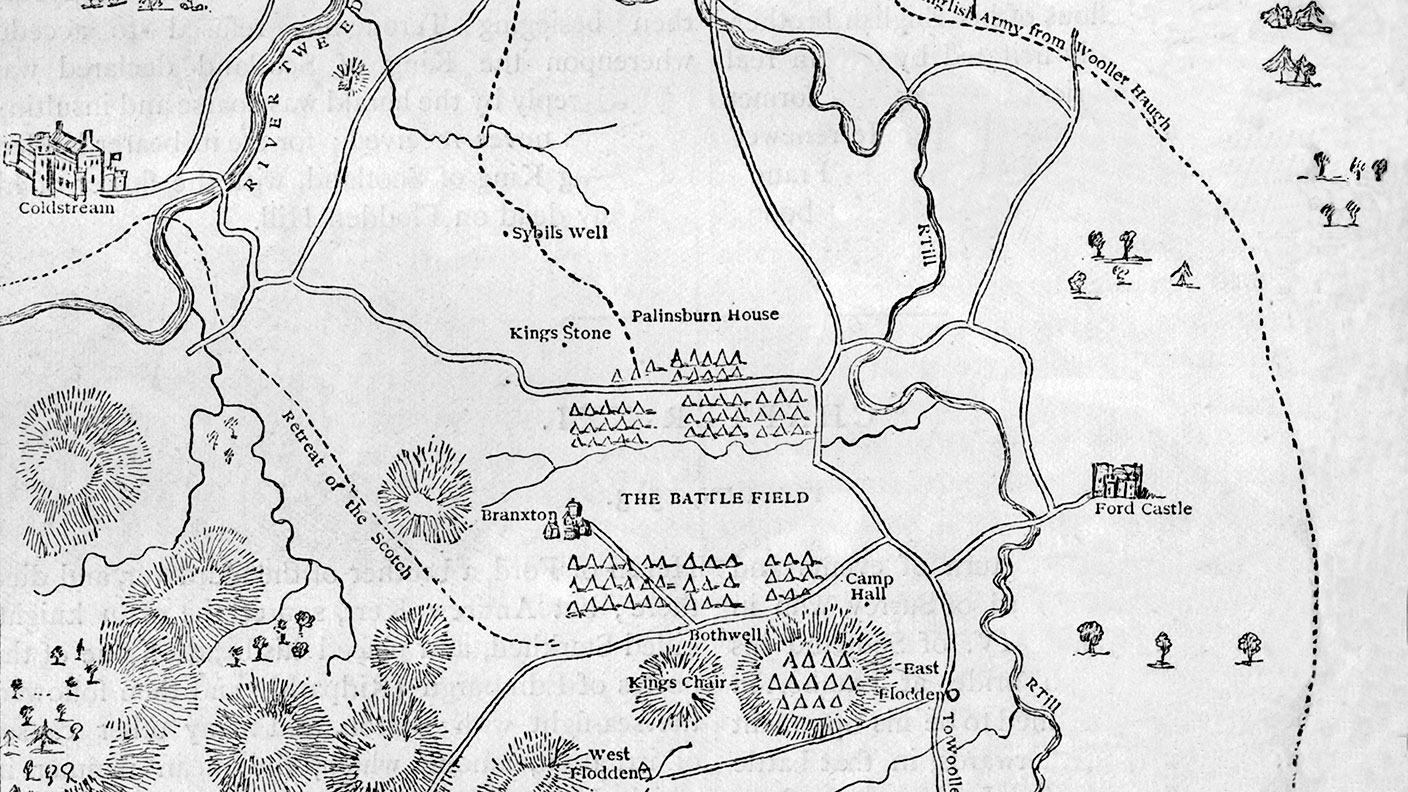
Get the latest financial news, insights and expert analysis from our award-winning MoneyWeek team, to help you understand what really matters when it comes to your finances.
You are now subscribed
Your newsletter sign-up was successful
Want to add more newsletters?

Twice daily
MoneyWeek
Get the latest financial news, insights and expert analysis from our award-winning MoneyWeek team, to help you understand what really matters when it comes to your finances.

Four times a week
Look After My Bills
Sign up to our free money-saving newsletter, filled with the latest news and expert advice to help you find the best tips and deals for managing your bills. Start saving today!
Before the unpleasant disagreement with Rome that led to the creation of the Church of England, Henry VIII was a good Catholic boy. And in 1513, he and his army were camped out at the siege of Thérouanne, defending Il Papa from who else, but the French.
Scotland, having been big pals with France since the forging of the Auld Alliance in 1295, was unhappy. So James IV sent an envoy to tell Henry to give it a rest, or he would invade England.
Henry wasn't impressed, declaring "If he be so hardy to invade my realm or cause to enter one foot of my ground, I shall make him as weary of his part as ever was man that began any such business". He charged Thomas Howard, AKA the Earl of Surrey, the Warden of the Northern Marches, with repelling any invasion.
MoneyWeek
Subscribe to MoneyWeek today and get your first six magazine issues absolutely FREE

Sign up to Money Morning
Don't miss the latest investment and personal finances news, market analysis, plus money-saving tips with our free twice-daily newsletter
Don't miss the latest investment and personal finances news, market analysis, plus money-saving tips with our free twice-daily newsletter
James ignored Henry's wise words, assembled an army of up to 30,000 men, and headed south to invade. As was customary for the time, he politely gave a month's notice of his plans. Rather like modern schoolboys arranging a fight outside the school gates at home time, the Earl of Surrey and James contracted to fight a battle near the village of Milfield in Northumberland, no later than 9 September.
James's army marched south, and, while he waited for the English army to arrive, prepared fortifications on Flodden Hill. Surrey and his men arrived nearby on the 8th. Early on the morning of the 9th, the English troops manoeuvred into position to the north of the Scots. When the Scots awoke, they found themselves outflanked.
By the afternoon, the two armies were facing each other on Branxton Moor. Three bloody hours later, between 1,000 and 4,000 English soldiers lay dead, and between 7,000 and 11,000 Scots. Crucially, James and most of his nobles died alongside them. He was the last king from the British Isles to die in battle.
Scots feared that the English would march on Edinburgh, which hastily constructed its Flodden Wall, still visible, in defence. But with its king and much of its nobility dead, Scotland was no longer seen as a threat.
Get the latest financial news, insights and expert analysis from our award-winning MoneyWeek team, to help you understand what really matters when it comes to your finances.

-
 Average UK house price reaches £300,000 for first time, Halifax says
Average UK house price reaches £300,000 for first time, Halifax saysWhile the average house price has topped £300k, regional disparities still remain, Halifax finds.
-
 Barings Emerging Europe trust bounces back from Russia woes
Barings Emerging Europe trust bounces back from Russia woesBarings Emerging Europe trust has added the Middle East and Africa to its mandate, delivering a strong recovery, says Max King
-
 31 August 1957: the Federation of Malaya declares independence from the UK
31 August 1957: the Federation of Malaya declares independence from the UKFeatures On this day in 1957, after ten years of preparation, the Federation of Malaya became an independent nation.
-
 13 April 1960: the first satellite navigation system is launched
13 April 1960: the first satellite navigation system is launchedFeatures On this day in 1960, Nasa sent the Transit 1B satellite into orbit to provide positioning for the US Navy’s fleet of Polaris ballistic missile submarines.
-
 9 April 1838: National Gallery opens in Trafalgar Square
9 April 1838: National Gallery opens in Trafalgar SquareFeatures On this day in 1838, William Wilkins’ new National Gallery building in Trafalgar Square opened to the public.
-
3 March 1962: British Antarctic Territory is created
Features On this day in 1962, Britain formed the British Antarctic Territory administered from the Falkland Islands.
-
10 March 2000: the dotcom bubble peaks
Features Tech mania fanned by the dawning of the internet age inflated the dotcom bubble to maximum extent, on this day in 2000.
-
9 March 1776: Adam Smith publishes 'The Wealth of Nations'
Features On this day in 1776, Adam Smith, the “father of modern economics”, published his hugely influential book The Wealth of Nations.
-
 8 March 1817: the New York Stock Exchange is formed
8 March 1817: the New York Stock Exchange is formedFeatures On this day in 1817, a group of brokers moved out of a New York coffee house to form what would become the biggest stock exchange in the world.
-
7 March 1969: Queen Elizabeth II officially opens the Victoria Line
Features On this day in 1969, Queen Elizabeth II took only her second trip on the tube to officially open the underground’s newest line – the Victoria Line.
